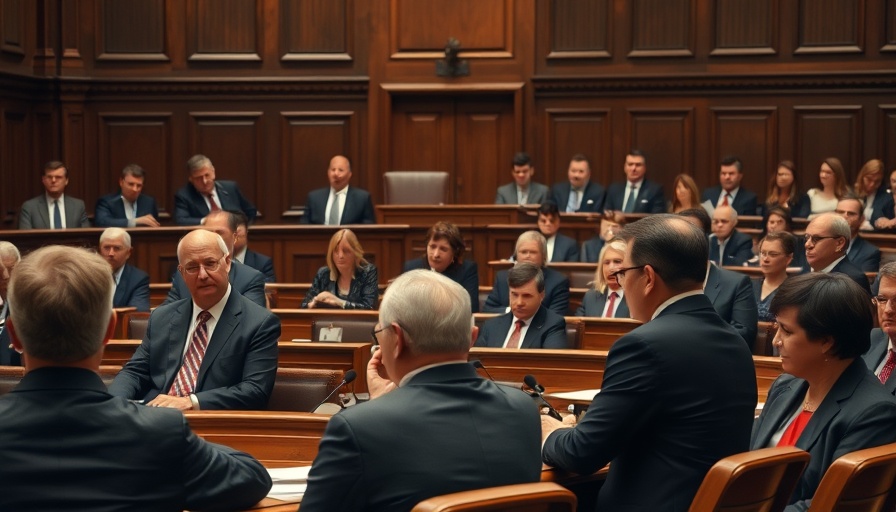
The Gulf of America: A Controversial Designation That Sparked Debate
This week, an Alabama Senate committee faced a notable setback when it failed to advance a bill that aimed to formally recognize the "Gulf of America" in various public documents. The proposal, initiated by Rep. David Standridge, R-Hayden, follows an executive order from President Donald Trump suggesting the renaming of the Gulf of Mexico to this new title. This move, while seemingly straightforward, has ignited fervent discussions around geography, identity, and the implications of altering well-known terminologies.
Understanding the Bill's Intent and Backlash
The objective of the bill was to ensure that all state and local entities reference the Gulf as the "Gulf of America" in everything from educational materials to official maps starting in October 2025. Proponents argued that the name change reflects national pride and a desire for clarity in regional identity. However, critics of the legislation worry that such a change may erase the historical importance of the existing name that is deeply embedded in the culture and history of the Gulf Coast.
Historical Context—Why Names Matter
The history of the Gulf of Mexico is intrinsic to the economies and cultures of the states it touches. The Gulf has long been a hub for fishing, tourism, and trade. Changing its name to the "Gulf of America" raises questions about how geographical names shape identity and the potential consequences of such changes on local communities. The name embodying a sense of ownership can redefine issues of belonging and heritage, making it crucial to consider the perspectives of those living along the Gulf waters.
Diverse Perspectives on Geographical Naming
In discussing the bill, it's evident that there are varied opinions on its implications. Some see it as an act of nationalism, promoting the idea that the Gulf should be explicitly identified with America as a symbol of pride. Others argue that such nationalistic naming conventions can overshadow the unique historical and cultural significance of places that have different national and indigenous names. These contentious viewpoints highlight the complexity of rebranding well-established geographical names.
Future Implications for Local Culture and Environment
The failed progression of this bill signals a potentially pivotal moment for Alabama politics and local identity. As discussions evolve around geographical references, the environmental and cultural impacts must also be taken into account. The Gulf region is facing challenges like climate change and pollution, and yet, the focus remains on nomenclature rather than substantive environmental policies. Moving forward, it will be essential for Alabama representatives to prioritize discussions that genuinely benefit the citizens and ecosystems reliant on the Gulf.
Next Steps for Advocates and Politicians
With the setback in the Senate committee, it remains to be seen whether Rep. Standridge and his supporters will reintroduce the bill with amendments or adopt a different approach to the issue. Advocates for coastal naming and recognition must strategically consider how to engage both supporters and detractors in future dialogues to reach a consensus that honors the Gulf's legacy while addressing contemporary perspectives.
Ultimately, questions of identity and nomenclature in Alabama are just one piece of a larger national conversation about how geography shapes our understanding of belonging. As citizens and policymakers continue to debate the name of this critical waterway, the broader implications of such choices must be at the forefront of their minds.
 Add Row
Add Row  Add
Add 




 Add Row
Add Row  Add
Add 

Write A Comment